Normandy
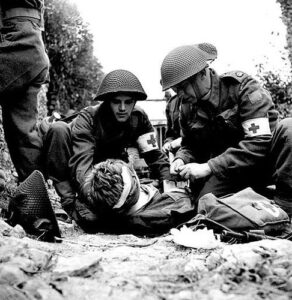
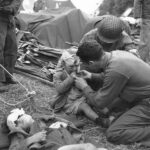 Not every soldier that stormed the beaches at Normandy, France on D-Day (June 6, 1944), carried a gun…or any other weapon. I’m not saying these men were more brave that their armed counterparts, because all of those men were targets. They all knew, going in that it was very unlikely that they would come home again. They were running onto an armed beach in broad daylight, with the plan of taking down the strongholds that existed there. The main difference between the armed soldiers and the medics was the inability to protect themselves. The medics weren’t there to fight. They were there to save. The were the only thing standing between the armed soldiers and certain death. Just the thought of that brings tears to my eyes. All the men who stormed those beaches faced almost certain death, and yet they knew they had to go. They couldn’t live with themselves if they didn’t do their best, be it killing the enemy soldiers or saving the wounded soldiers.
Not every soldier that stormed the beaches at Normandy, France on D-Day (June 6, 1944), carried a gun…or any other weapon. I’m not saying these men were more brave that their armed counterparts, because all of those men were targets. They all knew, going in that it was very unlikely that they would come home again. They were running onto an armed beach in broad daylight, with the plan of taking down the strongholds that existed there. The main difference between the armed soldiers and the medics was the inability to protect themselves. The medics weren’t there to fight. They were there to save. The were the only thing standing between the armed soldiers and certain death. Just the thought of that brings tears to my eyes. All the men who stormed those beaches faced almost certain death, and yet they knew they had to go. They couldn’t live with themselves if they didn’t do their best, be it killing the enemy soldiers or saving the wounded soldiers.
Most soldiers are trained to shoot, fight, and kill the enemy, but a combat medic is very different. He is trained to do the exact opposite. The medics had no guns. They went in to “battle” unarmed, and their mission wasn’t to attack the enemy, it was to dodge the bullets that were flying everywhere and get to the soldiers who had been wounded. Then they tried to get them off the battlefield so they could treat their wounds, and hopefully save their lives. Sometimes, they had to treat them where they were. Bullets don’t distinguish between a soldier and a medic.
There are, of course, far too many medics who have bravely gone in to try to save other soldiers at the risk of losing their own lives. While the armed soldiers fight the battles, medics pick up the pieces during and after the battle. It’s the medics who gather up the belongings of those they cannot save, so they can be returned to the families. They don’t really have much time before they must move on to the next wounded soldier, and so often they grab the dog tags, because it is the only true way to know who this soldier was. It’s the only way to let their family know that their brave soldier gave the ultimate sacrifice in battle.
My dad, Staff Sergeant Allen Spencer was a top turret gunner and flight engineer in one of the B-17s that 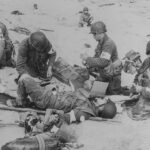
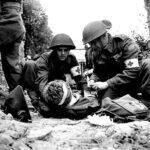 provided cover for the men as they stormed the beaches of Normandy that fateful day. My uncle, Jim Wolfe was one of the men below, storming the beaches. I don’t know if they knew each other then, but they would later, when my Uncle Jim married my dad’s sister, Ruth. It’s very hard to think about this battle, because so many lives were lost. I don’t know how anyone made it onto that beach without getting pelted with a barrage of bullets, but I am thankful for the medics who were there to try to pick up the pieces. Today marks the 80th anniversary of D-Day. From a grateful nation, we honor all who fought in that horrific battle. Very brave men all!!
provided cover for the men as they stormed the beaches of Normandy that fateful day. My uncle, Jim Wolfe was one of the men below, storming the beaches. I don’t know if they knew each other then, but they would later, when my Uncle Jim married my dad’s sister, Ruth. It’s very hard to think about this battle, because so many lives were lost. I don’t know how anyone made it onto that beach without getting pelted with a barrage of bullets, but I am thankful for the medics who were there to try to pick up the pieces. Today marks the 80th anniversary of D-Day. From a grateful nation, we honor all who fought in that horrific battle. Very brave men all!!
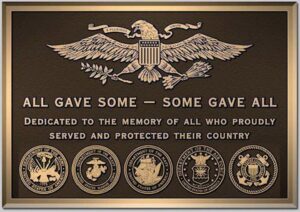
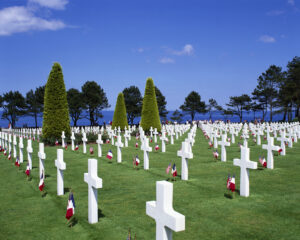 Memorial Day is a different kind of day, because it is not a holiday of celebration, but rather a day remembrance. We cannot celebrate this day, because it is about honoring those soldiers who went to war and didn’t make it back. It was the ultimate sacrifice. As the saying goes concerning soldiers, “all gave some, but some gave all!” When a soldier goes to war, they know. They are very aware that the possibility exists that they will not come back home. They know that their sacrifice might be the ultimate sacrifice. They want to make it home, but they know it may not be. Today is about those soldiers who did not make it home.
Memorial Day is a different kind of day, because it is not a holiday of celebration, but rather a day remembrance. We cannot celebrate this day, because it is about honoring those soldiers who went to war and didn’t make it back. It was the ultimate sacrifice. As the saying goes concerning soldiers, “all gave some, but some gave all!” When a soldier goes to war, they know. They are very aware that the possibility exists that they will not come back home. They know that their sacrifice might be the ultimate sacrifice. They want to make it home, but they know it may not be. Today is about those soldiers who did not make it home. 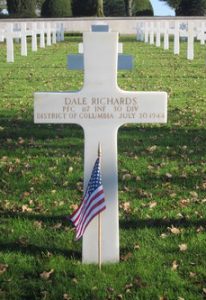
I doubt if there are many families that can say that they have never lost a soldier in battle, but while I don’t specifically know of any in my family, I’m sure there are some back there a way. There have been many wars, and with each one examined, comes the increased chance of having a relative who dies at war. It doesn’t matter anyway, because Memorial Day is a day to honor those who gave all, whether they are related to us or not. Their sacrifice is what makes us free today. They fought for people they didn’t even know, gave up time with the family they loved, and died in a place they didn’t want to be. That is the epitome of bravery and courage.
Some of them, including my uncle, Jim Richards’ brother Dale Richards never left the place they died. Dale fought in Normandy, France, and that is where he is to this day. The people of France are so grateful for the soldiers who fought and died over there, that they keep the graves looking beautiful. It’s nice to know that there are people who continue to show their appreciation for those men who “gave all” for them. Their sacrifice should never be forgotten. Their families can certainly never forget. They have had to go forward with their lives without the love and support of the soldier that went to war and never came home. That soldier had 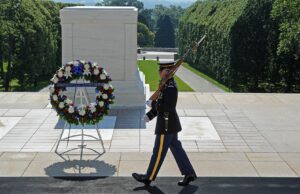
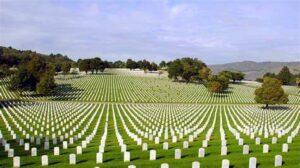 potential. They could have been anything they wanted to be, but instead, they chose to give their life to ensure the freedom of other human beings. Today, we honor all of those men who “gave all” for us and so many others. We thank you for your service, and we honor your memory. God bless you all, from a grateful nation.
potential. They could have been anything they wanted to be, but instead, they chose to give their life to ensure the freedom of other human beings. Today, we honor all of those men who “gave all” for us and so many others. We thank you for your service, and we honor your memory. God bless you all, from a grateful nation.
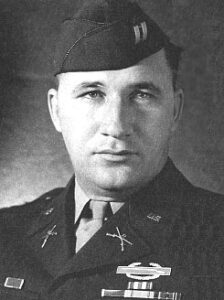 Captain Leonard Treherne “Max” Schroeder Jr looked out over the choppy water between the landing craft he was on and the shores of their destination…the beaches of Normandy, France. The beaches had been given code names, to protect the mission…Utah, Omaha, Gold, Juno, and Sword; the operation was code named Overlord. The beach ahead of Schroeder had been code named Utah. Along the hills behind the beach were many German bunkers, with armed German snipers hiding inside of them. Schroeder knew they were just waiting for them to step onto the beach before the snipers would open fire.
Captain Leonard Treherne “Max” Schroeder Jr looked out over the choppy water between the landing craft he was on and the shores of their destination…the beaches of Normandy, France. The beaches had been given code names, to protect the mission…Utah, Omaha, Gold, Juno, and Sword; the operation was code named Overlord. The beach ahead of Schroeder had been code named Utah. Along the hills behind the beach were many German bunkers, with armed German snipers hiding inside of them. Schroeder knew they were just waiting for them to step onto the beach before the snipers would open fire.
Schroeder was about to find out firsthand, just how bad this day was going to be. In fact, he was the first American soldier whose feet hit the sand on the beach at Normandy on D-Day…so, while his men were right behind him, he would experience this horrific battle at its inception. I have wondered just how they knew that he was first amid all that chaos, but it is a documented fact. Operation Overlord was pivotal in the United States’ overall success, but it was also extremely bloody, with great loss of life. While every life lost was horrific, the men who stormed the beaches of Normandy that day were willing to give their lives for a 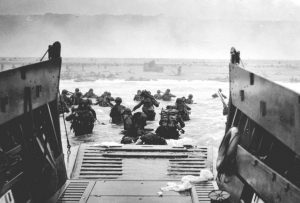 cause that they felt was essential…and I have so much respect for each and every one of them. Captain Schroeder led his team of men onto the beach…along with thousands of others…and managed to get them to their secured location. Nevertheless, during the mission, he was shot twice by German snipers. Once the mission was accomplished and his men were where they needed to be, Captain Schroeder passed out from his injuries.
cause that they felt was essential…and I have so much respect for each and every one of them. Captain Schroeder led his team of men onto the beach…along with thousands of others…and managed to get them to their secured location. Nevertheless, during the mission, he was shot twice by German snipers. Once the mission was accomplished and his men were where they needed to be, Captain Schroeder passed out from his injuries.
Schroeder woke up at an aid station on the beach, with medics taking care of his wounds so he could be transported to an army hospital in England. While in England, he recovered and had a lot of time to read all about his role in the successful mission…in many papers. I don’t know if he realized that his had been such a pivotal role in the battle, but it had. At the time, I doubt if he thought he would ever see that beach again, but in 1994, Schroeder revisited the beach at Normandy as a guest of the French 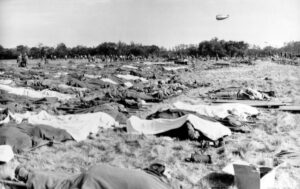 government. It was an amazing ceremony to pay homage to his heroic efforts that helped turn the tide for the Allies in World War II. It was an honor he had given no thought to as he looked out at that beach on that long ago June 6, 1944…but, an honor that he had earned along with all the other men who fought, and the many who had died. I’m sure those who gave all, were thankful that some made it home and managed to live a long life of liberty. Captain Leonard “Max” Schroeder, who was born on July 16, 1918, in Linthicum Heights, Maryland, passed away from emphysema early on the morning of May 26, 2009, in Largo, Florida at the age of 90.
government. It was an amazing ceremony to pay homage to his heroic efforts that helped turn the tide for the Allies in World War II. It was an honor he had given no thought to as he looked out at that beach on that long ago June 6, 1944…but, an honor that he had earned along with all the other men who fought, and the many who had died. I’m sure those who gave all, were thankful that some made it home and managed to live a long life of liberty. Captain Leonard “Max” Schroeder, who was born on July 16, 1918, in Linthicum Heights, Maryland, passed away from emphysema early on the morning of May 26, 2009, in Largo, Florida at the age of 90.
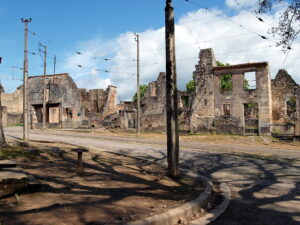 During World War II, the Nazis had a little problem…the resistance. Of course, the resistance had to be very careful, and stay in hiding much of the time. There were informants, the police, and the enemy soldiers to watch out for. It was hard to tell sometimes who was an enemy and who was a friend. Every day was spent in hiding, and often in fear for their lives.
During World War II, the Nazis had a little problem…the resistance. Of course, the resistance had to be very careful, and stay in hiding much of the time. There were informants, the police, and the enemy soldiers to watch out for. It was hard to tell sometimes who was an enemy and who was a friend. Every day was spent in hiding, and often in fear for their lives.
With the Allied invasion of Normandy, the French resistance saw an opportunity to really increase their activity in the area. Of course, there were more fighter pilots in need of an escape routes, and soldiers who were wounded, but they also saw a way to strike back. One such way was to kidnap and kill Helmut Kampfe, a major in the Waffen-SS Das Reich. Of course, all resistance action came at a cost. Following the killing of Kampfe, a battalion of the regiment known 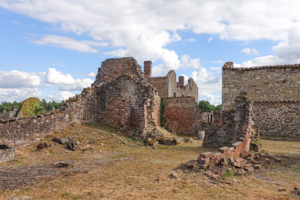 as Der Fuhrer Regiment was sent to the small village of Oradour-sur-Glane.
as Der Fuhrer Regiment was sent to the small village of Oradour-sur-Glane.
Of course, the village was innocent, but someone had to pay so Commander Adolf Diekmann ordered the town sealed off, the men locked in barns, and the women and children confined to the church. Nobody knows why the town was chosen for this attack. Maybe it was due to the town’s proximity to the regiment, or maybe it was because the Germans knew the village was defenseless. Whatever it was, it was about to get brutal.
Diekmann ordered his unit to begin shooting. It was like a terrorist attack. The residents were first incapacitated by gunshots to the legs. When they 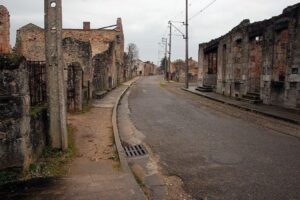 were unable to move, the barns and church were doused with gasoline and ignited. Hundreds of the villagers died that day, nearly all the residents of the area. Many of the SS who were there that day were Alsatian French nationals who had been forced into the German military, and almost all them escaped punishment, which is a crime in itself. After World War II, French president Charles De Gaulle declared that the village was never to be restored. It was to stand as it was after the attack, as a reminder of the brutal Nazi occupation. Brutality like that should never be forgotten, and maybe the evidence should stand as a reminder of the evil that exists in some people. Lest we forget.
were unable to move, the barns and church were doused with gasoline and ignited. Hundreds of the villagers died that day, nearly all the residents of the area. Many of the SS who were there that day were Alsatian French nationals who had been forced into the German military, and almost all them escaped punishment, which is a crime in itself. After World War II, French president Charles De Gaulle declared that the village was never to be restored. It was to stand as it was after the attack, as a reminder of the brutal Nazi occupation. Brutality like that should never be forgotten, and maybe the evidence should stand as a reminder of the evil that exists in some people. Lest we forget.
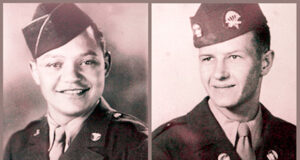 There were a number of events that took place on June 6, 1944, also known as D-Day. The areas of the Allied attack were miles away from each other. Early that morning, the Allies dropped thousands of allied paratroopers behind enemy lines in anticipation of the invasion of Normandy. It seems a strange idea to drop them behind enemy lines…like it was a big mistake. Nevertheless, one of the main objectives of the 101st Airborne was to capture the small village of Angoville-au-Plain. Then, when intense fighting broke out over the village, they dropped two American medics, Robert Wright and Kenneth Moore, in to set up a medical station in the tiny town
There were a number of events that took place on June 6, 1944, also known as D-Day. The areas of the Allied attack were miles away from each other. Early that morning, the Allies dropped thousands of allied paratroopers behind enemy lines in anticipation of the invasion of Normandy. It seems a strange idea to drop them behind enemy lines…like it was a big mistake. Nevertheless, one of the main objectives of the 101st Airborne was to capture the small village of Angoville-au-Plain. Then, when intense fighting broke out over the village, they dropped two American medics, Robert Wright and Kenneth Moore, in to set up a medical station in the tiny town 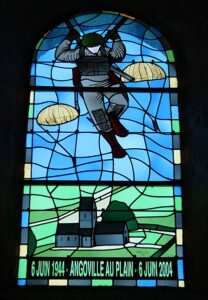 church. So, now they had not only had troops behind the lines, but they have medics…without guns behind the lines too.
church. So, now they had not only had troops behind the lines, but they have medics…without guns behind the lines too.
The plan to take over the village worked quickly and well. United States paratroopers established control of Angoville-au-Plain, but just as quickly, German units counterattacked and forced American troops back. Because of multiple injuries, Wright and Moore stayed behind. Suddenly they found themselves in danger when German soldiers entered the church. At first the German soldiers were hostile to the Americans, but then they realized that the medics were treating their wounded, as well the Allied wounded. The German troops could have attacked the men, and walked away without penalty, but instead, they left, posting a Red Cross flag at the entrance.
The fighting in the area raged on for three days, and the village changed hands several times, but the two medics never missed a beat. Over the course of the three days, they saved 80 lives, including a local teenager. The amazing part of the whole thing wasn’t just that they saved the lives, but also that the German soldiers didn’t kill them 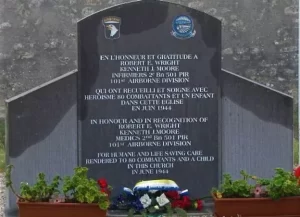 in the first place. I’m sure the medics thought that was an amazing thing. The little village of Angoville-au-Plain thought is was amazing too…not just the work of the medics, but also the work of the 101st Airborne. They thought it was amazing enough to make sure it was remembered
in the first place. I’m sure the medics thought that was an amazing thing. The little village of Angoville-au-Plain thought is was amazing too…not just the work of the medics, but also the work of the 101st Airborne. They thought it was amazing enough to make sure it was remembered
Today, all of the stained glass windows in the church (the originals were destroyed in the battle) are tributes to Wright, Moore, and the 101st Airborne. Wright visited the church in 2004, and some of his ashes were spread in Angoville-au-Plain’s cemetery as per his request, following his death on December 21, 2013. Moore passed away on December 7, 2014.
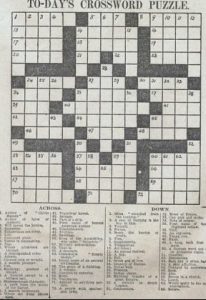 As the Allies were planning the massive D-Day assault which was intended to end World War II in Europe, some strange “coincidences” happened that almost threw a monkey wrench into the whole thing. The planned assault on Normandy, France, in 1944, was to include over 5,000 ships, 1,200 planes, and almost 160,000 men. They were set to invade Europe from the British Isles, when something almost put a stop to it…a series of crossword puzzles. Personally, I hate crossword puzzles. They are boring in my mind, so if I were to find a clue in one, it would likely be a miracle.
As the Allies were planning the massive D-Day assault which was intended to end World War II in Europe, some strange “coincidences” happened that almost threw a monkey wrench into the whole thing. The planned assault on Normandy, France, in 1944, was to include over 5,000 ships, 1,200 planes, and almost 160,000 men. They were set to invade Europe from the British Isles, when something almost put a stop to it…a series of crossword puzzles. Personally, I hate crossword puzzles. They are boring in my mind, so if I were to find a clue in one, it would likely be a miracle.
The problem began with the Dieppe Raid on August 19th, 1942. Dieppe is also in Normandy, but further North. In Dieppe, over 6,000 Allied troops, mostly from Canada, attacked at 5 AM. “They had four main goals: (1) to prove that it was possible to capture a slice of Nazi-occupied Europe, (2) to boost Allied morale, (3) to gain intelligence, and (4) to destroy coastal defenses and other sensitive installations.” The mission failed miserably, with the loss of, capture of, or retreat of almost 60% of the invading forces by 3 PM. This couldn’t have been just coincidental, and the Allies wanted to know what had happened. It seemed quite likely that the Germans had been warned of the attack. How could this have happened. Somehow, the suspicion fell on The Daily Telegraph, a British paper still in business today. I’m sure there were a number of newspapers over the years that were used to pass coded messages to the enemy. And I guess it would take a spy’s mind to figure it all out. It had to be discreet, because the paper can’t just give advance warning notice to the enemy, but they did (and still do) have a crossword puzzle section. What better avenue for coded messages. The thing that really triggered suspicion was that two days before the Dieppe invasion, the clue, “French port” was given. And the solution was “Dieppe,” given the following day…the day before the invasion. When I think about the 6,000 men that walked into an ambush because of that one puzzle, I feel furious. This wasn’t a coincidence, this was deliberate, and it was criminal.
The intelligence personnel quickly focused on Leonard Sydney Dawe…the headmaster of Strand School, who was responsible for the crossword puzzle. They were surprised to think it might be him, because he was a veteran of World War I. In addition, nothing linked him to Nazi Germany. In the end, MI5 concluded that it was just that a chilling coincidence, but was it…really? The Strand School for boys in south London, which no longer exists, still stuck out as being somehow involved. It was learned that when the Germans began their bombardment of the city in 1939, Strand was moved to Effingham in Surrey, which was close to where many American and Canadian forces were based.
The French invasion was called Operation Overlord. It was to take place on June 5th, 1944 and involve a series of joint sea and air landings along the Normandy coast. Rather than mass themselves at one spot, however, they were to land at five different areas according to nationality. The Americans were to land at two places. The first was on the left bank of the Douve estuary…codenamed Utah Beach. The second was the stretch which included Sainte-Honorine-des-Pertes, Saint-Laurent-sur-Mer, and Vierville-sur-Mer…referred to as Omaha. The 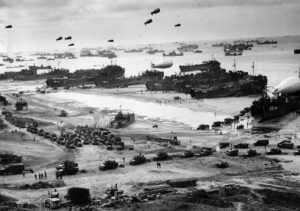 British were also given two landing sites – the first along Saint-Aubin-sur-Mer to Ouistreham…Sword Beach, as well as the strip from Arromanches-Les-Bains, Le Hamel, and La Rivière…Gold Beach. As for the Canadians, they were assigned the stretch from Courseulles, Saint-Aubin, and Bernières…Juno Beach. To ensure the quick off-loading of cargo, portable bridges called “Mulberry Harbors” were built. Ships would tow these to France, assemble them at sea, then drive equipment onto the beaches.
British were also given two landing sites – the first along Saint-Aubin-sur-Mer to Ouistreham…Sword Beach, as well as the strip from Arromanches-Les-Bains, Le Hamel, and La Rivière…Gold Beach. As for the Canadians, they were assigned the stretch from Courseulles, Saint-Aubin, and Bernières…Juno Beach. To ensure the quick off-loading of cargo, portable bridges called “Mulberry Harbors” were built. Ships would tow these to France, assemble them at sea, then drive equipment onto the beaches.
The massive size of the invasion, made it almost impossible to keep a complete secret from the Germans, so the plan was to keep them guessing as to exactly when and where the invasion would take place. It was then that the Allies launched Operation Bodyguard…a series of diversions which convinced the Germans that Normandy was simply a distraction, while the main invasion was to take place elsewhere. The Germans bought it, they didn’t want to take any chances. As a result, they stretched their forces thin in a desperate attempt to cover all of their bases. To keep them off balance, absolute secrecy was vital.
Then, in February 1944, one of The Daily Telegraph’s crossword answers was “JUNO.” The following month, it was “GOLD,” and the month after that, it was “SWORD.” Coincidence? MI5 thought so. Then, when the next puzzle included the clue, “One of the US,” they began to wonder. The next day, the answer given was “UTAH.” This was really too much, and MI5 was getting worried. As soon as the May 22nd edition came out, MI5 anxiously grabbed a copy. Scanning the crossword section, they found yet another suspicious clue…“Red Indian on the Missouri River.” And what was the answer given the next day? “OMAHA.” Lets just say, they were getting nervous. Still, it got worse. The May 27th edition had another damning clue…“Big-Wig.” And the answer was? “OVERLORD.” The clincher came on June 1…four days before lift-off. The solution to 15 Down was “NEPTUNE.”
Dawe was arrested at his school to the astonishment of the students and staff. They then banned the paper’s next publication in case “DDAY” appeared in the next crossword. The US Coast Guard manned USS LST-21 unloads British Army tanks and trucks onto a “Rhino” barge during the early hours of the invasion on Gold Beach, 6 June 1944. Dawe was released after the invasion but refused to speak about his ordeal till 1958. He admitted that they did turn him “inside-out,” and had D-Day turned into another Dieppe, he might have been shot. Many people thought it was all just a coincidence…at least till 1984 when Ronald French, a former student at Strand, came forward. As it turns out, Dawe didn’t create crossword puzzles. He instead had students arrange words on a grid, and when he was satisfied, provided clues to solve them by. Then he’d send the finished work to the paper, taking credit for the work. According to French and other former students who later came forward, everyone in Surrey knew the code words. It seems that because they all hung around the Americans and Canadians, the words had leaked out. The French didn’t know what the words meant, only that the servicemen often said them. So when told to work on the crossword puzzles, he included the codes. After his release, Dawes confronted French and accused him of putting the entire country at risk, but how had this 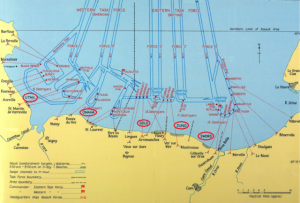 happened. It seems that despite their own secrecy, the MI5 had apparently forgotten to tell the army to keep their mouths shut. It all came about because when the Allies believed that the war was turning in their favor, the Third Washington Conference…also called the Trident Conference…was held in Washington, DC in May 1943. It was there that plans for an Allied invasion of Sicily, France, and the Pacific were discussed. The careless soldiers that spilled the code words almost cost the Allies the victory. D-Day was a battle that cost the Allies many lives, but it could have been much worse, if the secrets had been passed to the enemy in a way that they could have understood them.
happened. It seems that despite their own secrecy, the MI5 had apparently forgotten to tell the army to keep their mouths shut. It all came about because when the Allies believed that the war was turning in their favor, the Third Washington Conference…also called the Trident Conference…was held in Washington, DC in May 1943. It was there that plans for an Allied invasion of Sicily, France, and the Pacific were discussed. The careless soldiers that spilled the code words almost cost the Allies the victory. D-Day was a battle that cost the Allies many lives, but it could have been much worse, if the secrets had been passed to the enemy in a way that they could have understood them.
 Memorial Day…an often misunderstood day, is actually a day to remember those military men and women who paid the ultimate price for our freedom…they gave their life in service to their country. Whether we know it or not, I’m sure that every family has lost a love one to war…some war in history. It might be many years in the past, and we may not even know about it at all, nevertheless, it is our duty to remember and to honor them, because they sacrificed their very lives that we might live in a free nation. It is so hard to think of someone that we care about, being killed in a foreign country while fighting a war.
Memorial Day…an often misunderstood day, is actually a day to remember those military men and women who paid the ultimate price for our freedom…they gave their life in service to their country. Whether we know it or not, I’m sure that every family has lost a love one to war…some war in history. It might be many years in the past, and we may not even know about it at all, nevertheless, it is our duty to remember and to honor them, because they sacrificed their very lives that we might live in a free nation. It is so hard to think of someone that we care about, being killed in a foreign country while fighting a war.
I am one of those people who doesn’t personally know of a family member lost in a war, but my Uncle Jim Richards brother, Dale was lost on the beaches of Normandy France on July 30, 1944. It is incomprehensible to me to think of his family getting word of his passing, only to find out that they would have to foot the bill to bring him home for burial. There simply were not enough funds, and so Dale was buried at the Brittany American Cemetery and Memorial, in Normandy, France. I can’t begin to imagine the awful day when the summer suddenly seemed as cold as ice. No parent should have to outlive their child, but with war comes death, and someone’s son or daughter will not be coming home again. I heard it put best in a song by Tim McGraw. The song, If you’re Reading This talks about getting a “one way ticket” over there. Unfortunately, far too many of our young men and women have been given that one way ticket, and while they paid with their lives, their families paid too. Their loved one is forever take from them, and they are left to mourn…to try to go on with their lives.
So many people look at Memorial Day as a holiday…a day to hold picnics, sports events and family gatherings. This day is traditionally seen as the start of the summer season for cultural events. For the fashion conscious, it is seen as acceptable to wear white clothing, particularly shoes from Memorial Day until Labor Day. However, fewer and fewer people follow this rule and many wear white clothing throughout the year. But how should we, the living, best honor the lives of all those who have died in service to our country? On Memorial Day, it is traditional to fly the flag of the United States at half staff from dawn until noon. Many people visit cemeteries 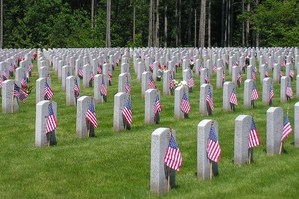 and memorials, particularly to honor those who have died in military service. Many volunteers place an American flag on each grave in national cemeteries. in reality, this is a day to reflect on the sacrifices made to keep us free. While we feel like we should be honoring veterans who have passed away, the reality is that their day is Veterans Day, which honors the veterans of all wars living or dead. Within the military, there is a very strict protocol concerning the days we honor military personnel. The other thing that we tend to find odd about Memorial Day, is that we can’t go to someone and thank them for their sacrifice, because the way they came to be honored is to have given their life for their country. All we can do is to honor their memory.
and memorials, particularly to honor those who have died in military service. Many volunteers place an American flag on each grave in national cemeteries. in reality, this is a day to reflect on the sacrifices made to keep us free. While we feel like we should be honoring veterans who have passed away, the reality is that their day is Veterans Day, which honors the veterans of all wars living or dead. Within the military, there is a very strict protocol concerning the days we honor military personnel. The other thing that we tend to find odd about Memorial Day, is that we can’t go to someone and thank them for their sacrifice, because the way they came to be honored is to have given their life for their country. All we can do is to honor their memory.
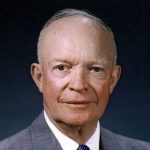
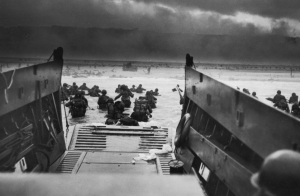 On this D-Day, a subject I have previously written about, I began to wonder about a different side of the story of this age old battle that everyone has heard of, even if some don’t know what it was all about. My thoughts turned to General Eisenhower. It was he who had the unfortunate task of deciding to attack the Germans who were occupying France, by way of the beaches of Normandy, France. It was he who had to carry the emotional burden of knowing that if the attack was made, he would be sending men to die. I would not have wanted to be in his shoes as he pondered this monumental decision. Nevertheless, someone had to make the decision. Things could not go on as they were. The future of the free world was dependent on the decisions made by this one man.
On this D-Day, a subject I have previously written about, I began to wonder about a different side of the story of this age old battle that everyone has heard of, even if some don’t know what it was all about. My thoughts turned to General Eisenhower. It was he who had the unfortunate task of deciding to attack the Germans who were occupying France, by way of the beaches of Normandy, France. It was he who had to carry the emotional burden of knowing that if the attack was made, he would be sending men to die. I would not have wanted to be in his shoes as he pondered this monumental decision. Nevertheless, someone had to make the decision. Things could not go on as they were. The future of the free world was dependent on the decisions made by this one man.
As families listened to their radio stations on the morning of June 6, 1944, one Valerie Lauder, who was 18 at the time, had graduated from Stephens Junior College that May and was not due at Northwestern University and the Medill School of Journalism until September was among the listeners. Her father was listening too, until he had to go to work. She said that President Roosevelt came on the radio and offered a prayer. Then, she heard General Eisenhower’s recorded reading of the order of the day, the troops in LSTs and transports heard it over loudspeakers. At that point, Val decided that she would really like to meet General Eisenhower, and given her chosen profession as a journalist, she was able to eventually make that happen. In fact, she was not only able to meet General Eisenhower 2½ years later, but was also able to preside at his press conference with the student press club that she had created and the Chicago Daily News sponsored.
She related the scene, “On January 18, 1947, Wearing two battle ribbons on his waist-length “Eisenhower jacket,” the supreme commander of the Allied Expeditionary Forces in Europe stood to my left, facing 165 student editors and photographers from high school and college newspapers throughout the greater Chicago area gathered in the Drake Hotel. Dressed in their Sunday best, pencils poised, notebooks open, they were seated on straight-back chairs set out in rows of 10 on either side of a center aisle. Ike stood at the end of the center aisle, about three feet in front of me. I introduced him.” As Val introduced General Eisenhower, she asked him, “General Eisenhower, what was the greatest decision you had to make during the war?” Eisenhower contemplated her question for a moment, and then answered her in a somber and serious tone about the D-Day landings. “To ensure the success of the Allied landings in Normandy,” he explained, “it was imperative that we prevent the enemy from bringing up reinforcements. All roads and rail lines leading to the areas of fighting on and around the beaches had to be cut or blocked. If reinforcements were allowed to reach the areas of fighting there, in our first, precarious attempts to get a foothold on the continent, the whole operation could be jeopardized. The landings might fail. The success of the landings on the beaches,” Ike said, reaching the end of the first row, starting back, “might well turn on the success of the paratroopers behind the lines.”
Then, on May 30, just six days before the scheduled landings, which were to have been June 5, a trusted aide and personal friend came to him, deeply concerned about the airborne landing. Val later that learned it was British Air Chief Marshal Sir Trafford Leigh-Mallory, who had been assigned to the Allied forces, with the title of Air Commander in Chief, which made him the air commander of the Allied invasion. He was apologetic about how late it was, so close to the jump-off time. But, he’d gone over it, and over it, and over it, and felt it simply would not succeed. The casualties would be too great. He pleaded with Eisenhower. “Casualties to glider troops would be 90% before they ever reached the ground,” he said. “The killed and wounded among the paratroopers would be 75%.” Eisenhower knew that would mean an unbearably high percentage of the 18,000 men who would drop into the darkness over Nazi-occupied France would become casualties. This would also mean that the survivors would be too few in number to succeed in their crucial mission of seizing, and holding the causeways. “The man was absolutely sincere, absolutely convinced it wouldn’t work,” Eisenhower said. “As a highly respected, capable officer, I trusted his judgment. I told him I’d think it over.”
After agonizing over the possible losses, he was still undecided just four days before the planned date. Eisenhower slowing, turned to face the students, he said, “I let the order stand.” With the words, his face seemed to relax. I suppose you would have to decide that you were going to be ok with the decision, or else it 
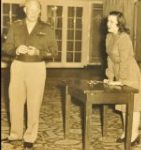 would drive you crazy. The students sat in stunned silence. “The airborne boys did their job.” Eisenhower went on with relief almost bordering on elation. “And, I am happy to say, the casualties were only 8%.” Eisenhower was not just a general setting up a battle, but rather a man with a heartfelt concern for the men in the airborne divisions and the men in the landing craft headed for the beaches. As he put it in his book, Crusade in Europe, “It would be difficult to conceive of a more soul-racking problem.” I have to agree. To only lose 8% of the men in that situation, well that is…unbelievable!!
would drive you crazy. The students sat in stunned silence. “The airborne boys did their job.” Eisenhower went on with relief almost bordering on elation. “And, I am happy to say, the casualties were only 8%.” Eisenhower was not just a general setting up a battle, but rather a man with a heartfelt concern for the men in the airborne divisions and the men in the landing craft headed for the beaches. As he put it in his book, Crusade in Europe, “It would be difficult to conceive of a more soul-racking problem.” I have to agree. To only lose 8% of the men in that situation, well that is…unbelievable!!
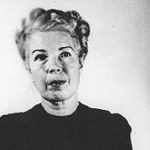 War is tough enough without having a traitor in the mix, and when a traitor is involved, things get even worse. One such traitor of World War II, was Mildred Gillars, aka Axis Sally. Apparently, Gillars, an American, was a opportunist. In 1940, she went to work as an announcer with the Reichs-Rundfunk-Gesellschaft (RRG), German State Radio. At the time, I suppose that she did nothing wrong…up to that point. In 1941, the US State Department was advising American nationals to return home, but Gillars chose to remain because her fiancé, Paul Karlson, a naturalized German citizen, said he would never marry her if she returned to the United States. Then, Karlson was sent to the Eastern Front, where he was killed in action. Gillars still did not return home.
War is tough enough without having a traitor in the mix, and when a traitor is involved, things get even worse. One such traitor of World War II, was Mildred Gillars, aka Axis Sally. Apparently, Gillars, an American, was a opportunist. In 1940, she went to work as an announcer with the Reichs-Rundfunk-Gesellschaft (RRG), German State Radio. At the time, I suppose that she did nothing wrong…up to that point. In 1941, the US State Department was advising American nationals to return home, but Gillars chose to remain because her fiancé, Paul Karlson, a naturalized German citizen, said he would never marry her if she returned to the United States. Then, Karlson was sent to the Eastern Front, where he was killed in action. Gillars still did not return home.
On December 7, 1941, Gillars was working in the studio when the Japanese attack on Pearl Harbor was announced. She broke down in front of her colleagues and denounced their allies in the east. “I told them what I thought about Japan and that the Germans would soon find out about them,” she recalled. “The shock was terrific. I lost all discretion.” This may have been the the last time she had any self respect. She later said that she knew that her outburst could send her to a concentration camp, so faced with the prospect of joblessness or prison, the frightened Gillars produced a written oath of allegiance to Germany and returned to work. She sold out. Her duties were initially limited to announcing records and participating in chat shows, but treason is a slippery slope. Gillars’ broadcasts initially were largely apolitical, but that changed in 1942, when Max Otto Koischwitz, the program director in the USA Zone at the RRG, cast Gillars in a new show called Home Sweet Home. She soon acquired several names amongst her GI audience, including the Berlin Bitch, Berlin Babe, Olga, and Sally, but the one most common was “Axis Sally”. This name probably came when asked on air to describe herself, Gillars had said she was “the Irish type… a real Sally.”
As her broadcasts progressed, Gillars began doing a show called Home Sweet Home Hour. This show ran from December 24, 1942, until 1945. It was a regular propaganda program, the purpose of which was to make US forces in Europe feel homesick. A running theme of these broadcasts was the infidelity of soldiers’ wives and sweethearts while the listeners were stationed in Europe and North Africa. I’m was designed to promote depression. I guess her aversion to the ways of the Japanese and Germans wasn’t so strong after all. She also did a show called Midge-at-the-Mike, which broadcast from March to late fall 1943. I this program, she played American songs interspersed with defeatist propaganda, anti-Semitic rhetoric and attacks on Franklin D. Roosevelt. And she did the GI’s Letter-box and Medical Reports 1944, which was directed at the US home audience. In this show, Gillars used information on wounded and captured US airmen to cause fear and worry in their families. After D-Day, June 6, 1944, US soldiers wounded and captured in France were also reported on. Gillars and Koischwitz worked for a time from Chartres and Paris for this purpose, visiting hospitals and interviewing POWs. In 1943 they had toured POW camps in Germany, interviewing captured Americans and recording their messages for their families in the US. The interviews were then edited for broadcast as though the speakers were well-treated or sympathetic to the Nazi cause. Gillars made her most notorious broadcast on June 5, 1944, just prior to the D-Day invasion of Normandy, France, in a radio play written by Koischwitz, Vision Of Invasion. She played Evelyn, an Ohio mother, who dreams that her son had died a horrific death on a ship in the English Channel during an attempted invasion of Occupied Europe.
After the war, Gillars mingled with the people of Germany, until her capture. Gillars was indicted on September 10, 1948, and charged with ten counts of treason, but only eight were proceeded with at her trial, which began 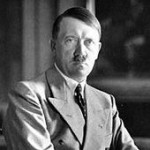 on January 25, 1949. The prosecution relied on the large number of her programs recorded by the FCC, stationed in Silver Hill, Maryland, to show her active participation in propaganda activities against the United States. It was also shown that she had taken an oath of allegiance to Hitler. The defense argued that her broadcasts stated unpopular opinions but did not amount to treasonable conduct. It was also argued that she was under the hypnotic influence of Koischwitz and therefore not fully responsible for her actions until after his death. On March 10, 1949, the jury convicted Gillars on just one count of treason, that of making the Vision Of Invasion broadcast. She was sentenced to 10 to 30 years in prison, and a $10,000 fine. In 1950, a federal appeals court upheld the sentence. She died June 25, 1988 at the age of 87.
on January 25, 1949. The prosecution relied on the large number of her programs recorded by the FCC, stationed in Silver Hill, Maryland, to show her active participation in propaganda activities against the United States. It was also shown that she had taken an oath of allegiance to Hitler. The defense argued that her broadcasts stated unpopular opinions but did not amount to treasonable conduct. It was also argued that she was under the hypnotic influence of Koischwitz and therefore not fully responsible for her actions until after his death. On March 10, 1949, the jury convicted Gillars on just one count of treason, that of making the Vision Of Invasion broadcast. She was sentenced to 10 to 30 years in prison, and a $10,000 fine. In 1950, a federal appeals court upheld the sentence. She died June 25, 1988 at the age of 87.
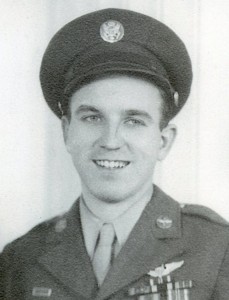 It’s hard for me to think about D-Day, without wondering what things were going through my dad, Allen Spencer’s mind on that day. Each branch of the military had their own part to play and each was in much danger. I suppose it’s possible that the men on the ground were in the most danger, but in reality, anyone who was involved that day faced grave danger. Soldiers could be shot and killed, ships could be sunk, and planes could be shot down. No matter how the attack came, death was often the result, and in battle it was inevitable.
It’s hard for me to think about D-Day, without wondering what things were going through my dad, Allen Spencer’s mind on that day. Each branch of the military had their own part to play and each was in much danger. I suppose it’s possible that the men on the ground were in the most danger, but in reality, anyone who was involved that day faced grave danger. Soldiers could be shot and killed, ships could be sunk, and planes could be shot down. No matter how the attack came, death was often the result, and in battle it was inevitable.
My dad was a young man of just 20 years. That is the age of my two oldest grandchildren, and I simply cannot imagine either of them being in that position. Of course, they could handle it, because twenty year olds have been fighting wars for as long as wars have been fought. It is me, and my mind, that can’t wrap itself around the idea of them being in an airplane providing air support over a battlefield. For my dad, every mission held an adrenalin rush, a degree of excitement, and a large degree of dread, mixed with the need to push back fear. Flying in the B-17G Bomber was an exciting thing for him, but unfortunately it had to 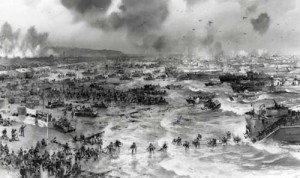 be mixed with the reality of the fact that those bombs were killing people…even if they were the enemy. They often had no say in the matter, they were an enemy of the Allied Forces simply because they lived in the country they did.
be mixed with the reality of the fact that those bombs were killing people…even if they were the enemy. They often had no say in the matter, they were an enemy of the Allied Forces simply because they lived in the country they did.
The air war was vastly different from the ground war, but that didn’t make either more of less dangerous. The Luftwaffe was not widely used on D-Day, but did come racing in over the following days. The weather was bad that first day, and that was definitely to the advantage of the Allied troops. Nevertheless, there were German forces involved, and without air support, they could not have pulled off the victory they did at Normandy. The planes that were there to provide air support, were basically magnets for the 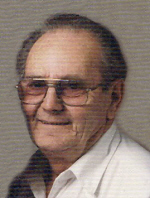 Luftwaffe, and any other enemy forces on the ground. Flying over Normandy was not a task to be taken lightly. Their job was to keep the bombers, tanks, and other soldiers off of the ground troops. The men risked their lives every second that they were in the air. The men on the ground were so vulnerable, and it was imperative that they have good air cover to keep as much enemy fire off of them as possible. It was very clear that without the air support, D-Day would not have been possible.
Luftwaffe, and any other enemy forces on the ground. Flying over Normandy was not a task to be taken lightly. Their job was to keep the bombers, tanks, and other soldiers off of the ground troops. The men risked their lives every second that they were in the air. The men on the ground were so vulnerable, and it was imperative that they have good air cover to keep as much enemy fire off of them as possible. It was very clear that without the air support, D-Day would not have been possible.
I am very proud of the part my dad played in D-Day, as I am of men like my Uncle Jim Wolfe, who was one of those men on the ground on that fateful day. Their job was a very dangerous one, and many of them would not see the sun set that night, but they had a job to do, and so they went out to battle for the freedom of those who were oppressed by the evil that was Hitler. It is a battle we will never forget, nor will we forget the men who fought there, especially those who gave all.

